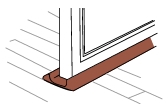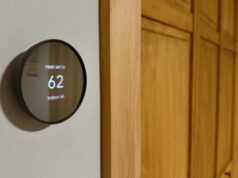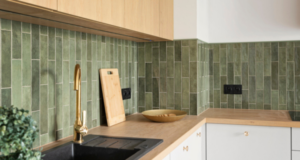
Not all doors are created equal – some will allow lots heat in or out of your home through the body of the door, and allow air to pass around the edges. Find out what makes for a well-insulated door.

Do doors need to be insulated?
The need for more or less insulation in and around a door is largely dependent on where the door is going to be located. If the door is facing the outer air for instance, it will need to offer better insulation than an inner door, which may need none at all. The amount of protection you’ll need in an outer door will also vary according to what side of the house it’s facing onto, the weather exposure it’s likely to see and whether it will have shielding from the elements or not.
Interior doors generally don’t need too much in the way of insulation, unless it’s for extra soundproofing or for unusually strict zoned climate control. In these cases (as with exterior doors), sealing the areas around the door is important.
How do different exterior doors compare?
The type of door you’re using on the outside of your home will usually be decided by other factors like whether it’s the front door or back door, and whether it is going to be used mainly for security or to take advantage of a deck or beautiful backyard. Solid wooden doors are generally well insulated, since wood isn’t a great heat conductor, but they can allow draughts through around the edges. This can be overcome by installing seals or weather strips around the outside of the door to block the passage of air.
Sliding glass doors are better conductors of heat – particularly those with metal frames – and in the warmer months will also allow through direct sunlight, which will introduce a lot of heat to your home.
To reduce the amount of heat that’s lost and gained through glass doors, you can opt for double-glazed panels. These trap a layer of air or gas between two layers of glass, which acts as a thermal barrier to prevent heat from passing through from inside or out. Another option, if you already have glass doors that are proving to be a problem, is to look into window films which can offer protection from solar heat gain and, to some extent, insulate against the conduction of heat through the glass.
Installing shading (awnings, for example) outside glass doors will also help to reduce heat gain.
How much insulation do hollow core doors provide?
Solid core doors are based on one thick, wooden panel, and can be quite effective at blocking heat simply because wood’s a poor conductor. Sound, however, is more of a problem for solid core doors as the solid material allows vibrations to pass straight through. Hollow core doors are surprisingly good insulators too, and are slightly better at blocking sound – especially if they’ve been constructed with this purpose in mind. They are generally much weaker though, and and not always suitable for use as external doors.
Sealing around doors
The vast majority of the heat that escapes and gets through a closed door comes from draughts escaping around the edges. Having the doors properly sealed between the door and the jamb and using weather strips can drastically reduce amount of heat fluctuation through doors.
Ideally, in any situation where you’re trying to maintain a significant difference in temperature between inside and out, all of your external doors should be well sealed.





